NATO expansion is a fight to the Finnish
Vladimir Putin’s attempt to deter NATO expansion has backfired as Finland steps up aid to Ukraine.
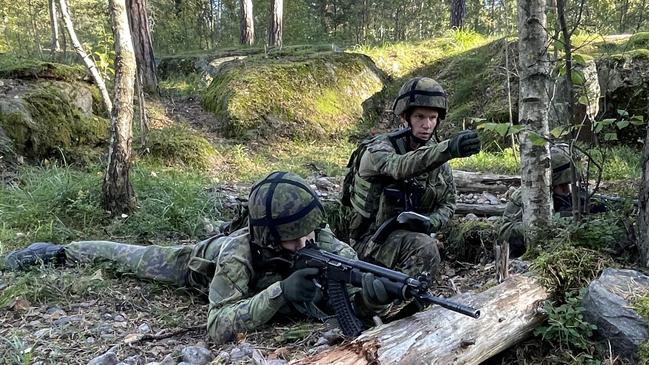
Finland is Vladimir Putin’s self-inflicted black eye. The Nordic realm that shares a 1340km border with Russia now is famous for more than reindeer, saunas and edgy design. The country of 5.5 million has become a living symbol of the wound the Russian leader has inflicted on himself invading Ukraine.
Almost overnight following Putin’s invasion of Ukraine on February 24 last year, the Finnish people – who since World War II proudly had been non-aligned militarily – turned on a dime and asked to join NATO.
It was a real-time revolution of the mind for Finland, a change so profound that its eventual accession to NATO in April this year has remade the geopolitical map of Europe and doubled the length of NATO’s borders with Russia.
For Putin it was the ultimate own goal for an invasion he claimed was aimed at preventing Ukraine from joining NATO but now has led Finland to join the alliance, with its Nordic neighbour Sweden expected to follow once Turkey drops its effective veto over Sweden’s entry.
In Helsinki, one might have thought the Finns would relax about their future now that they have the guarantee of NATO’s article five, which provides for NATO’s military intervention in case of an attack on Finland.
But when The Australian visited Helsinki to speak with politicians, generals, diplomats and ordinary Finns about their new view of the world, the opposite was true. So distrustful are the Finns about Putin’s ultimate intentions and so fierce is their traditional independent streak that even under their new NATO umbrella they are preparing to defend themselves alone if things go wrong.
“We cannot rely on NATO to look after us, we have to rely on ourselves,” says Lieutenant Colonel Marko Palokangas, an officer and military professor at the National Defence University on the outskirts of Helsinki.
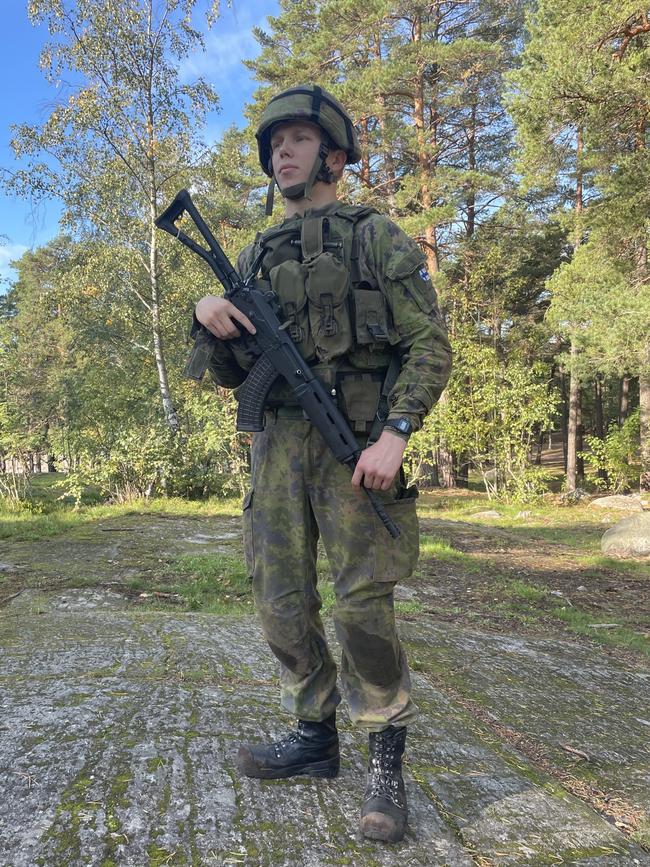
“We have no illusions about Russia and the will to defend our country has never been higher. Surveys show that more than 80 per cent of our people would be willing to take up arms if someone attacked Finland. This is much higher than similar surveys in other countries in Europe.
“We have 1340 good reasons for a strong defence,” he adds, referring to the length of the country’s border with Russia. “As we say, defence readiness is expensive but independence is priceless.”
As Palokangas speaks, we can hear the shouting of military conscripts in the forest outside as they weave in and out from trees, pointing their guns at imagined Russians as they train to become soldiers. Since Russia’s invasion of Ukraine, Finland has lifted defence spending and plans to spend 2.3 per cent of its gross domestic product on defence next year, higher than Australia and most other NATO members.
It has placed its defence force at a higher level of readiness and has ordered 64 F-35 Joint Strike Fighters to replace its ageing fleet of F/A-18 fighters. Finland also has given more than $US1.4bn ($2.2bn) in military aid to Ukraine, including tanks, and has been one of the most vocal EU members in calling for greater Western support for Kyiv.
Palokangas says Finland can muster a 280,000-strong fighting force at short notice but – because of compulsory national service for all young men – ultimately it could mobilise as many as 900,000.
“Russia knows it would be bloody and hard because it would be faced with a big army, hard terrain and people willing to fight,” he says.
This sort of confidence normally may seem out of place given Finland has the population of Sydney compared with 144 million Russians, but if you question them the Finns instantly speak of the Winter War of 1939-40.
In a conflict that has been etched in Finland’s mythology, the tiny, poorly equipped Finnish forces, often fighting on skis through a bitter winter, managed to repel a full-scale invasion attempt by the Soviet Union with 500,000 troops.
Although Finland ultimately was forced to negotiate peace, losing 11 per cent of its territory, it maintained its independence and the war remains one of military history’s great David v Goliath tales. It’s hard to have a beer with a Finn and talk about Russia without them referring to the Winter War.
Russia’s invasion of Ukraine also is leading more young Finnish women to sign up for military service. Finland has had compulsory military service for men aged 19 and 20 since its independence from Russia in 1917, with most serving 165 to 347 days. It’s a policy that has strong public backing.
But now more than 1000 Finish women a year also are asking to be trained for conflict alongside male conscripts.
“I was already signed in before the (Ukraine) war started but when the war started I thought that it’s more important now (because) we have the neighbour Russia and if war comes I want to know what to do instead of just waiting at home,” says volunteer Essi Kemppainen, 25, as she clutches her rifle while training in the forest.
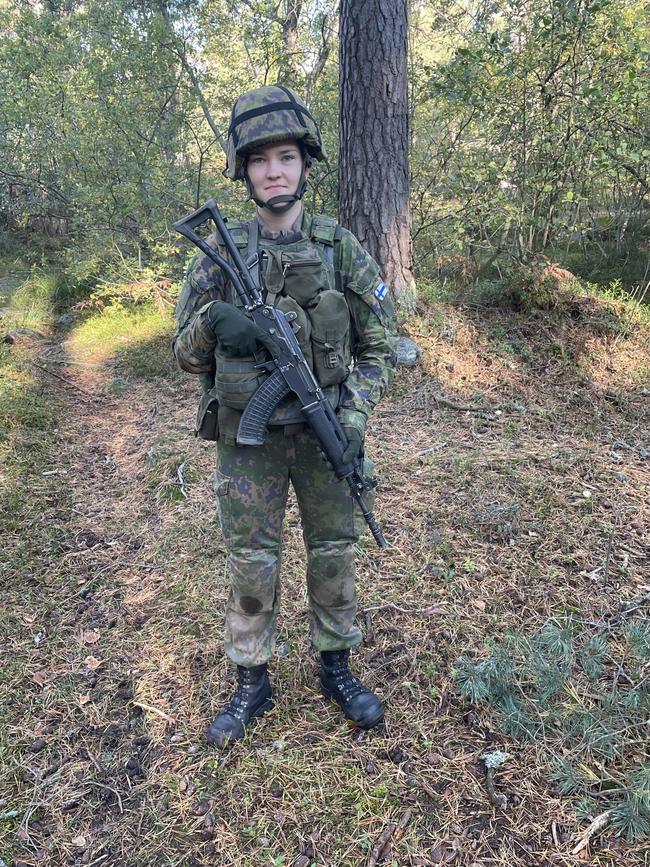
Nearby, conscript Altti Markkanen, 25, also cradles his gun and defends Finland’s need for compulsory military service.
“I think it’s necessary, everyone has to do it, especially when you think of the current state of the world we live in,” Markkanen says. “We have to do it, we have to be ready if something happens, and this is the only way to be ready.”
Finland’s almost instant change of mind on joining NATO after Russia’s invasion was something to behold.
Since the end of World War II Finland had studiously pursued military non-alignment, believing it was the best way to survive given the country’s precarious geographical position between the Soviet Union/Russia and the West.
“We had been polling the public opinion for 30 years and up to shortly before the invasion of Ukraine it never exceeded 20 or 25 per cent (in support of joining NATO),” Finland’s permanent representative to NATO, Piritta Asunmaa, tells me during an interview at NATO headquarters in Brussels.
“But I think public opinion started to change in late 2021 when intelligence information shared by the UK and US showed that Russia was gathering hundreds of thousands of troops on the borders of Ukraine.”
But even as late as January last year the Finnish prime minister at the time, Sanna Marin, said her country had no plans to join NATO in the near future.
On February 28 last year, just four days after the Russian invasion, a poll in Finland produced a result that stunned not only Finland but the rest of Europe. Out of the blue, 53 per cent of Finns said they were in favour of joining NATO, compared with only 20 per cent two years earlier.
Things moved fast from there. On May 17 last year, less than three months after Russia’s invasion, Finland formally applied to join NATO. In March this year 184 members of the 200-member Finnish parliament approved the accession, and on April 4 Finland’s flag was hoisted outside NATO headquarters for the first time as a formal member.
Since then public support in Finland for NATO membership has only continued to grow, with 80 to 90 per cent now supporting the move.
“Russia’s outrageous invasion of Ukraine is absolutely the reason why Finland needed to reconsider the tenets of our foreign and security policy,” says Asunmaa, whose job as her country’s permanent representative was created by Finland’s accession.
She says Finland’s vulnerable geography and its historically troubled relationship with Russia means the need for strong defence is ingrained in the population.
“I’m the mother of two boys and both of them have done their military service. So the military, and defence, is something that confronts every family member,” she says.
“It makes us very security conscious because we are thinking of our sons, our husbands, our fathers, and if something happens it really is not something that we can outsource. I think that’s really the reason why there was this very strong reaction in Finland to the Russian invasion of Ukraine.”
Michael Fullilove, executive director of Sydney’s Lowy Institute, says: “The accession of Finland and eventually Sweden is the ultimate unintended consequence of Putin’s brutal, unprovoked and disastrous invasion of Ukraine.
“He sought to weaken NATO but in fact he has strengthened NATO and after Sweden joins the Baltic Sea will basically be a NATO lake.”
During an interview in the parliament building in Helsinki, Lauri Tierala, Finland’s State Secretary to the Minister for Foreign Affairs and Minister for Defence, says: “A lot has changed. We are now considered an unfriendly country by Russia.
“They have said that they will reinforce military structures near our border, which is yet to happen, but sooner or later we expect that they will do as they have said.
“It’s clear that NATO brings capabilities that we as a small country do not have, whether it’s air force or intelligence, but the main responsibility for our own area is still with the Finnish Defence Forces. I think it’s ingrained very strongly into the backbone of all things that we take care of our own business.”
Mika Aaltola, director of the Finnish Institute of International Affairs, who is also running to be the country’s president, says that even NATO membership and Finland’s strong defence spending is not enough to guarantee protection from Putin’s ambitions.
“I am a hardliner when it comes to Russia because Russia has become a quasi-fascist state,” he says.
“Finland needs to lift defence spending from 2 to 3 per cent of GDP quickly.”
Why, I ask. “Because when did Noah start building his ark?” Aaltola replies. “Before the rain.”
Cameron Stewart visited Finland as the recipient of the 2023 Qantas-EU journalism award.


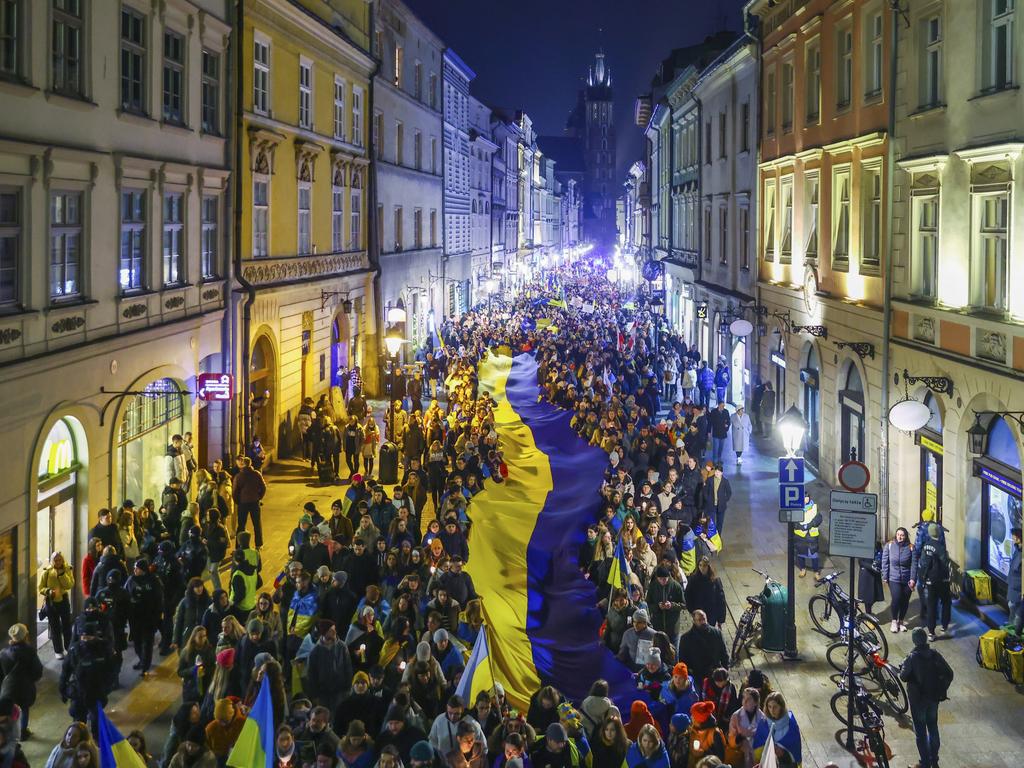

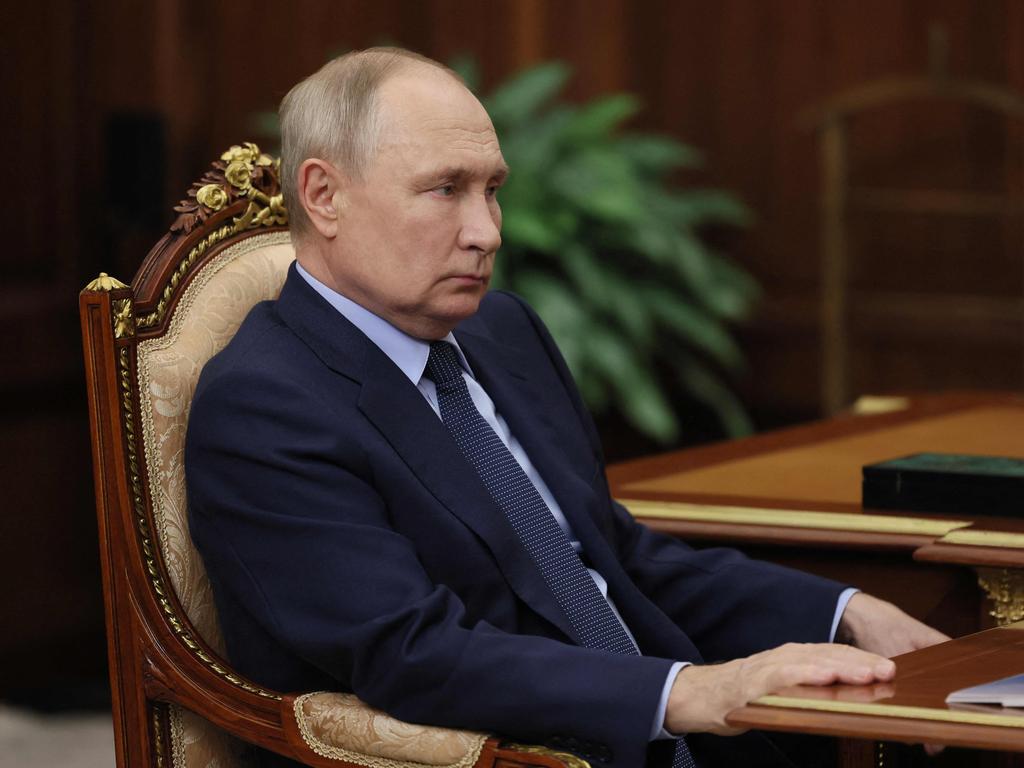
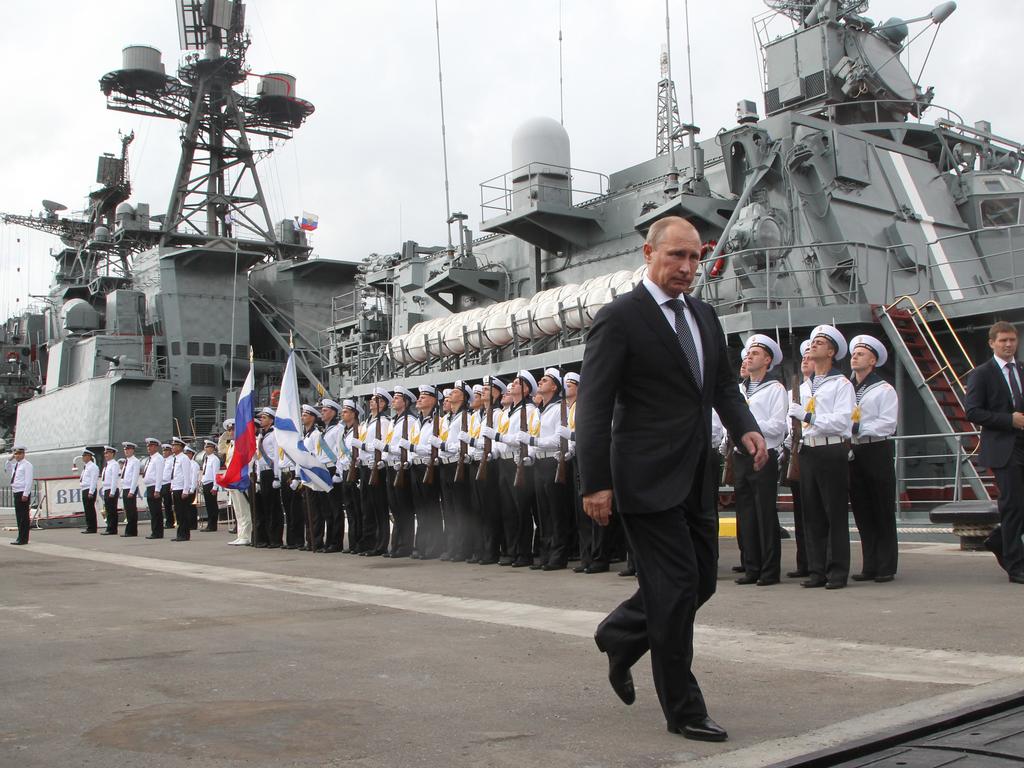


To join the conversation, please log in. Don't have an account? Register
Join the conversation, you are commenting as Logout